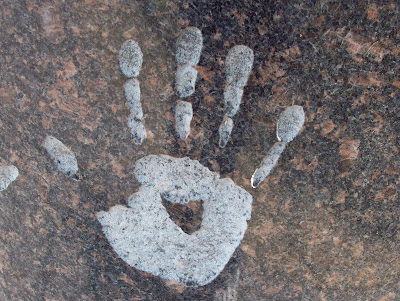


Dawn follows the thoughts of eighteen-year-old Elisha, a Hasidic Jewish survivor of Buchenwald, on the night before he is to execute a British officer in Palestine. The event is to take place at dawn, leaving Elisha an entire night to think about the moment that will permanently change him into a murderer. For me, the most striking moment was when the ghosts of his past joined him in the room to remind him that by becoming a murderer he was also making them, the people who had contributed to the man he had become, murderers as well.
These photographs are ones that I took last summer in the Brazillian cerrado. The first one was taken around 5:00 AM; the last one was around 6:00AM.













